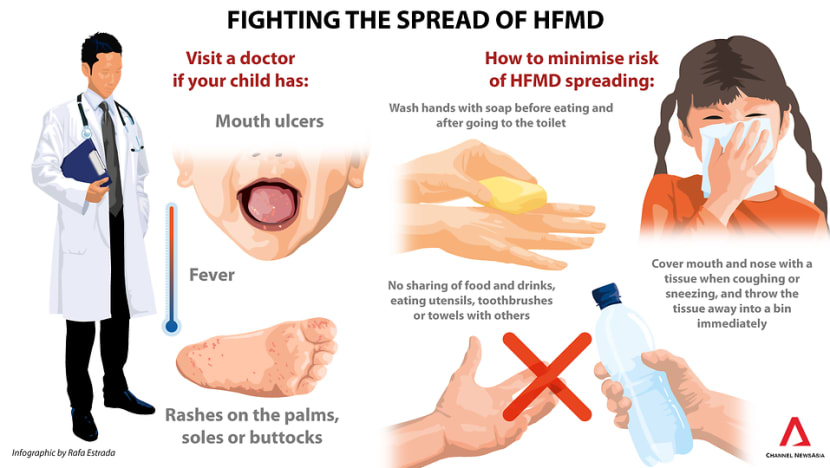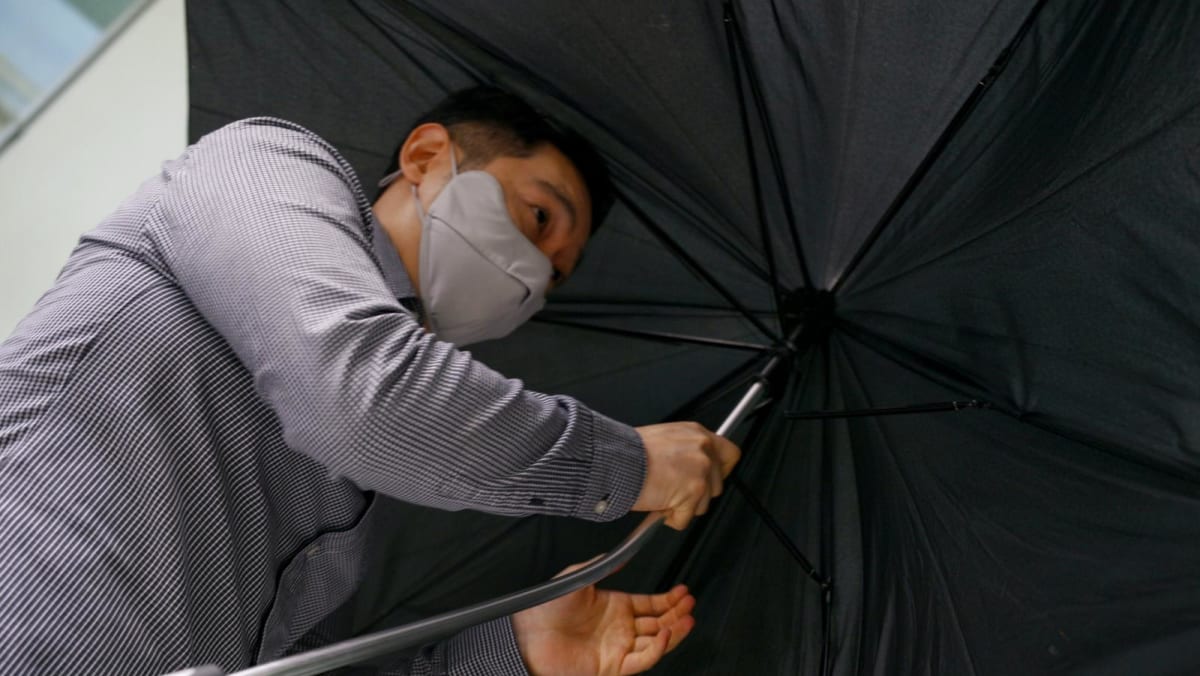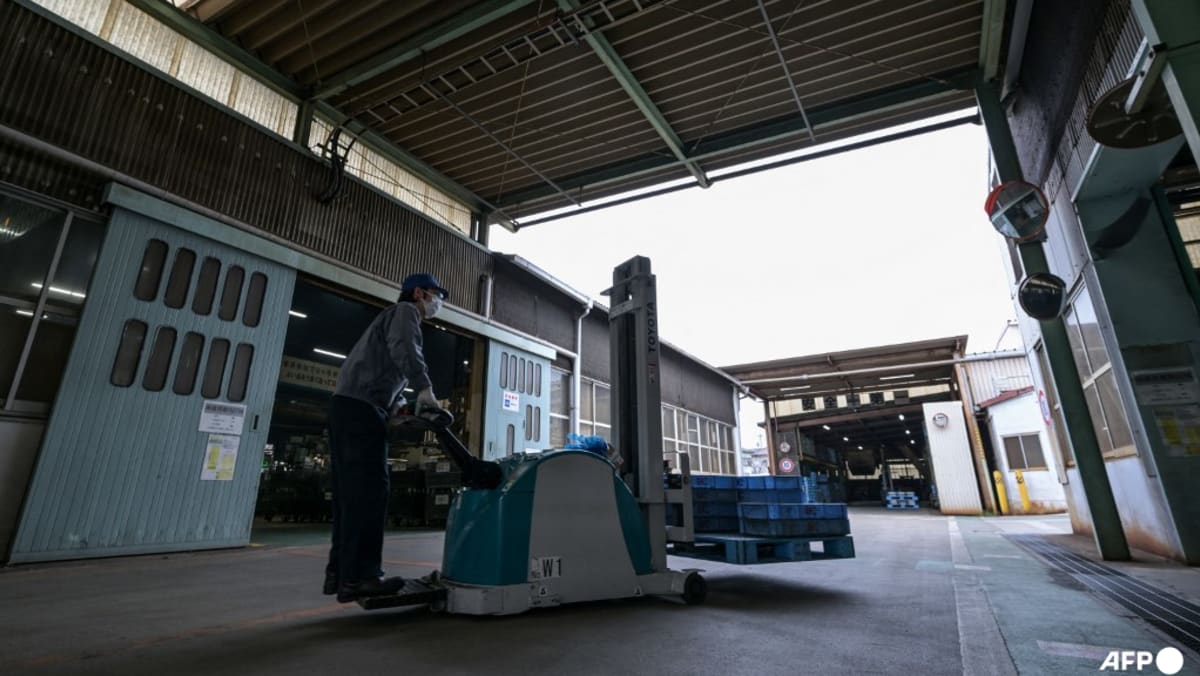SINGAPORE: Some preschools in Singapore are stepping up their checks and cleaning measures amid a recent increase in cases of hand, foot and mouth disease (HFMD).
Figures from the Ministry of Health (MOH) showed that for the week of Apr 27 to May 3, there was an average of 61 HFMD cases a day. The daily average did not go above 50 cases in 2023 and 2024.
At least two major preschool chains are taking precautions to protect their students from being infected.
Doctors are also encouraging parents to ensure their children maintain proper hygiene ahead of the June school holidays.
KEEPING AN EYE IN SCHOOL
My First Skool, a preschool chain with over 160 centres, said it has taken various steps from mandating daily temperature checks to reporting HFMD cases to the authorities.
Its staff also check children for ulcers in the mouth and ensure they are washing their hands.
The preschool said that lessons learnt from the COVID-19 pandemic have helped it improve hygiene practices.
"We continue to (teach) regular handwashing habits (to) our children, we also continue to sanitise our high touch surfaces,” said Ms Thian Ai Ling, general manager of My First Skool.
She added that health education forms an important part of how the preschool prevents infectious diseases.
Ms Thian said its centres have also invested in air purifiers and conduct regular checks to ensure proper indoor air quality in their premises.
She added children with HFMD are required to stay away from the centres to prevent infecting others, adding that its staff will step up their daily cleaning and thorough sanitisation of the premises.
“Our cleaners … are now trained professionally in enhancing the cleaning procedures and also understanding hygiene standards,” she said.
Ms Thian added that the preschool will help parents with online teaching resources and access to the children’s teachers during their absence.
Another operator, PCF Sparkletots, said it is closely monitoring the health situation across its nearly 350 preschools.
The preschool said it conducts daily health checks as well as regular cleaning and disinfection of the centres.
Centres also promote good personal hygiene to prevent the spread of HFMD infections, and work with parents to ensure children who are unwell remain at home.
REASONS FOR THE SPIKE
One doctor said the rise in cases could be due to an increasingly hot climate caused by global warming as well as virus mutations.
“HFMD tends to spread more … in warm and humid situations, in contrast to some of the other respiratory viruses (which) tend to spread more in the cold winter seasons,” said Dr Dave Ong, a paediatrician at Kids Clinic @ Punggol.
“There can sometimes be mutations in the genetics of the virus that may introduce new strains that people haven't had immunity to it before but that remains to be proven, depending on the genomic studies done on the viruses,” he added.
Dr Ong said adults can also be infected with HFMD and the symptoms are often more severe than what children experience.
He noted that adults have a mature immune system that reacts more aggressively against the virus, which could lead to greater severity of the symptoms.
“So, the symptoms may look more severe than the kids with a more immature immune system,” he added.
Dr Ong said treatments usually focus on managing the symptoms. These include managing fever with medication, ensuring the patient is well-hydrated and pain relief for mouth ulcers.
“If the child becomes very dehydrated from poor oral intake or vomiting, then they may need to be admitted to the hospital for IV hydration,” he added.
IMPORTANT TIPS
Ahead of the upcoming school holidays, doctors urge parents to ensure children maintain good hygiene.
Dr Ong warned that overseas travel could be another avenue for infection, with families travelling to other countries that may happen to have HFMD outbreaks.
 Tips on how to fight the spread of HFMD.
Tips on how to fight the spread of HFMD.
He added it is important to be careful of environments where surface transmission can occur.
Dr Ong said the virus which causes HFMD spreads through contact with saliva and via droplets.
With children having lots of daily interaction at places like schools, childcare and infant care, there is concern over infection from the surfaces they interact with.
He said maintaining a good level of hygiene is very important, even for surface interaction at outdoor places such as playgrounds, parks and gyms.
Dr Ong added that parents should ensure proper handwashing habits, be careful about sharing food and drinks, and clean surfaces and toys regularly.
The paediatrician also advised them to be aware of potential symptoms of HFMD, including fever, throat ulcers or rashes with blister-like spots.

















































.png?itok=erLSagvf)
